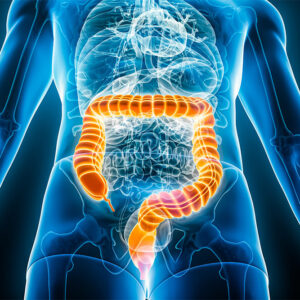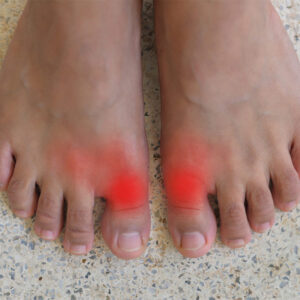Do We Use Only 10 Percent of Our Brain? The myth is finally answered, and the potential is exciting
Dear Living Well Daily Reader,
One of the most common questions about the human brain is: Do we really use only 10 percent of it?
This idea has pervaded popular culture, including that if we only tapped into that extra 90 percent, we could become geniuses.
A Scientific American article on this subject quoted neurologist and Baltimore local Barry Gordon at Johns Hopkins School of Medicine. According to him, “The ’10 percent myth’ is so wrong it is almost laughable.” I’ll just assume that, as he said this, he giggled maniacally and eventually burst out in a climactic guffaw.
Here’s the good news: The truth might be closer to the exact opposite. You may already be using 100 percent… but here’s the good news: You can use that 100 percent even better.
How?
My answer: “Chan phut Thai dai nit noi krap.”
“What on Earth did you just say?” you’d probably reply.
At which point I’d clarify…
In the last few weeks, I’ve been studying the Thai language. I just said, “I speak Thai a little.”
By learning and challenging ourselves (like, say, by learning a new language), we can upgrade the power of our 100 percent brain usage.
Scientists from the Center for Brain, Behavior, and Cognition and the Center for Language Science at Penn State showed this when they put 39 volunteers through a period of learning a new language. By the end, the language learners “increased gray matter density and white matter integrity.” Gray and white matter are major components of brain tissue. In other words, they developed better brains!
Whenever the subject of learning a language comes up, it’s usually followed by the quip of children being so much better at it. Just in case the “I’m too old” excuse is bubbling up in your mind, then you should know that these 39 volunteers represented all age groups… including seniors. So much for language learning being something just for kids, eh?
Speaking of activities supposedly just for young folks, here’s another one you might want to keep doing:
Working.
A study of more than 429,000 self-employed workers found that those who retired at 60 had a 14 percent higher rate of Alzheimer’s than those who waited until 65. Each year of delay resulted in a lower risk. The scientists believe it’s because of the mental engagement work provides.
Anyway, back to languages. For now, I’m only learning how to speak Thai. The language has a completely different alphabet, so when I write something like “khun narak mak,” it’s not so much genuine Thai as sounding out the words in English.
But for the purposes of engaging my brain (and visiting Thailand for the first time), it’ll do.
It might also help stave off Alzheimer’s. According to a study in India, knowing more than one language is associated with a near-half decade delay in developing the condition.
Now, you might think, Well, maybe that’s because anyone who gets to learn two languages probably has better health care and comes from a wealthier background. And that’s tough to rule out, but the study noted it’s the first to report “a bilingual advantage in those who are illiterate, suggesting that education is not a sufficient explanation for the observed difference.”
In other words, you now have no excuses. You have the power to keep your brain healthy, whatever your age or background.
So here’s your action step for better brain health:
Pick a new language and start learning. It will help your motivation if the language is spoken by the people of a country you want to visit. In my case, Thai for Thailand.
And you don’t need any money to start learning, either…
For some amazing insights into learning a new language from someone who walks the talk, check out Benny Lewis. He wrote an excellent guest post on Tim Ferriss’ blog, here, which Tim describes as the only post for language learning you’ll ever need.
I’ve followed his recommendation of using the free AnkiDroid app to make flashcards on my smartphone. At any time, I can open the app and go over words. The app even has a neat function where, if I feel like I’ve gotten a phrase memorized, I can select to not be tested on it for a longer time, such as 30 days. This way, I’m practicing just where I need to put in the most effort.
If you’ve always wanted to learn a second language but haven’t made the leap, use this extra brain health benefit to spur you to action. And if you’re already bilingual… keng mak!
That’s not the only brainpower trick we have up our sleeve. Tomorrow, you’re going to discover:
- What kind of exercise is best for improving brain health (this will definitely shock you)
- What lowers your risk of Alzheimer’s more, a good diet or proper exercise? Again, the answer might surprise you
- The gene possessed by 20 percent of the population that puts you at a higher risk for Alzheimer’s (and how to protect your brain in spite of this).
Sincerely,

Nate Rifkin
Underground Health Researcher
Written By Nate Rifkin
Nate Rifkin is an obsessed health and mind-power researcher and author. To hear more from Nate, sign up to receive Living Well Daily for free, here.
View More Free Articles
Discover WHY We Accidentally Overeat (and How to Stop)
Picture this… You finish eating a nice meal feeling just fine. But then, 20 minutes later, you’re groaning and clutching your belly because you feel uncomfortably stuffed. If this sounds familiar, you’re in good company. Most of us have had this happen. Science reveals why accidental overeating occurs… and what we can do to avoid...
Find Exercise Exhausting and Painful? Try THIS Natural Fix
If you’ve heard it once, you’ve heard it a thousand times: “You need to exercise.” And sure, you know how vital it is to healthy aging. But let’s be honest, sometimes it feels nearly impossible to get moving—especially when you know you’ll be sore for DAYS after. However, hold on to your seat because I’ve...
Mailbag: Unsteady on Your Feet? Now What?
“I’ve been having trouble with my balance lately and have fallen a couple of times. Could this be related to osteoporosis or another underlying cause?” – John Hi John, It’s always concerning when someone experiences balance issues or falls. While osteoporosis can contribute to an increased risk of falling, several other underlying causes should also...
Is There Really a Hidden Benefit to BROCCOLI?
Just when we thought broccoli’s resume couldn’t get any more impressive, new research proves us wrong. The phytonutrients in this tasty veggie can lower inflammation… balance blood sugar… and even boost your memory. And you likely already know of broccoli’s legendary prowess in preventing cancer. Now, a new study reveals that sulforaphane, the potent compound...
Belly Trick BOOSTS Brain Function
Boy do I love a cheap and easy solution. And if you can’t resist a good bargain either, keep reading. Because I have a brain-boosting one to share that fits the bill. If you’re like most folks, you intend to stay as sharp as a tack well into your golden years. So, you’re always on...
The Hidden Heart Danger LURKING in Your Gut?
Dear Living Well Daily Reader, Living with inflammatory bowel disease (IBD) is no walk in the park. The cramping, the urgency, the endless trips to the bathroom—it’s a daily struggle that can leave you exhausted and frustrated. And here’s the kicker: sometimes, IBD’s vague symptoms can lead to misdiagnosis or even NO diagnosis at all....
Has the Key to Unlocking Better MS Treatments Been Found?
Dear Living Well Daily Reader, Imagine waking up one morning and feeling a strange tingling in your fingers. You brush it off, thinking it’s just a pinched nerve. But then, your vision starts to blur, and your balance is thrown off. Suddenly, you’re faced with a terrifying reality: you have multiple sclerosis (MS). For the...
6 Secret Ways to Spot HIDDEN Processed Foods
“Avoid eating processed foods,”—If I’ve said it once, I’ve said it a thousand times. The reason why is simple. These Frankenfoods are designed to satisfy your taste buds. But they leave your body full of foreign chemicals that can cause harm and in need of more nutrients. But a patient asked me the other day,...
8 Red Flags There’s a Heart Attack in YOUR Future
Humor me and count to 40. Done? According to the Centers for Disease Control and Prevention (CDC), someone in the United States just had a heart attack. That adds up to around 805,000 people a year. Many of those were a “silent” heart attack, with the victim having no clue it even happened—and they go...
Mailbag! Neuropathy Pain? Ease Tingling in Hands and Feet
“I’m diabetic and have burning, tingling pain in my feet. My doctor says it is peripheral neuropathy, and there aren’t any cures. But do you have any tips to help me deal with it?” —Hank Hi Hank, Uncontrolled blood sugar can trigger nerve pain called peripheral neuropathy. This condition causes pain and numbness, usually in...









